Search
Search Results
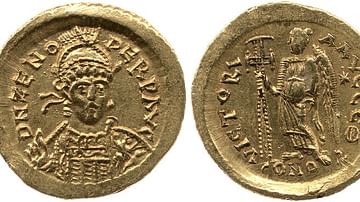
Definition
Emperor Zeno
Zeno was Byzantine emperor from 474 until 491 CE. An ethnic Isaurian, Zeno was repeatedly criticized as an outsider during his reign, which was full of rebellions and attacks by the Ostrogoths. He is best known for his failed attempt to compromise...
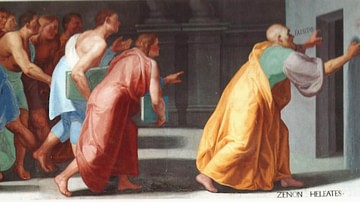
Definition
Zeno of Elea
Zeno of Elea (l. c.465 BCE) was a Greek philosopher of the Eleatic School and a student of the elder philosopher Parmenides (l.c. 485 BCE) whose work influenced the philosophy of Socrates (l. c. 470/469-399 BCE). Zeno and Parmenides are both...
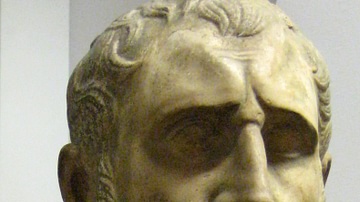
Definition
Zeno of Citium
Zeno of Citium (l. c. 336-265 BCE) was the founder of the Stoic school of philosophy in Athens, which taught that the Logos (Universal Reason) was the greatest good in life and living in accordance with reason was the purpose of human life...

Image
Emperor Zeno
Gold coin depicting Emperor Zeno (474-491 CE), minted in Constantinople.
British Museum
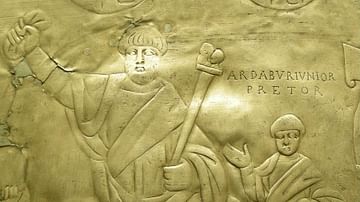
Article
The Isaurians and the End of Germanic Influence in Byzantium
Germanic influence reigned in the Roman Empire from the end of the 4th century CE through the 5th. Germanic individuals took important posts in the government and the military, and Germanic tribes penetrated ever further into lands that had...
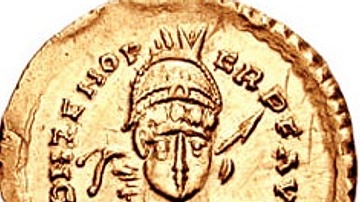
Definition
Odoacer
Odoacer (433-493 CE, reigned 476-493 CE) also known as Odovacar, Flavius Odoacer, and Flavius Odovacer, was the first king of Italy. His reign marked the end of the Roman Empire; he deposed the last emperor, Romulus Augustulus, on 4 September...
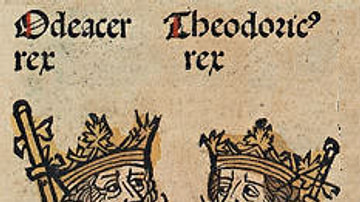
Definition
Theodoric the Great
Theodoric the Great (l. c. 454-526 CE, r. 493-526 CE, also known as Flavius Theodoricus) was the king of the Ostrogoths who, at the encouragement and direction of the Roman emperor Zeno, invaded Italy, deposed King Odoacer, and ruled over...
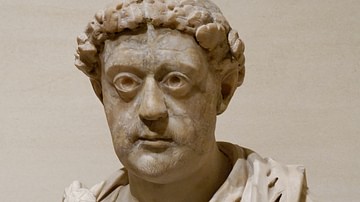
Definition
Leo I
Leo I was emperor of the Byzantine Empire from 457 to 474 CE. He was also known as “Leo the Butcher” (Makelles) for the assassination of his patron and rival Aspar. Although his reign was lacklustre and included a serious defeat...
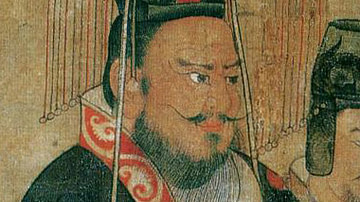
Definition
Chinese Emperor
The emperors of ancient China had tremendous power and responsibility. Called the 'Son of Heaven', he (and once she) was given a divine right to rule over all people but was expected to promote their best interest and not his own. An absolute...

Article
The Art of Dialectic & Zeno of Elea
The creation of the art of dialectic is credited to Zeno of Elea, the philosophical champion of Parmenides’ claim that the essence of reality is One and unchanging. Zeno was Parmenides’ student and protégé and, in defending and defining his...